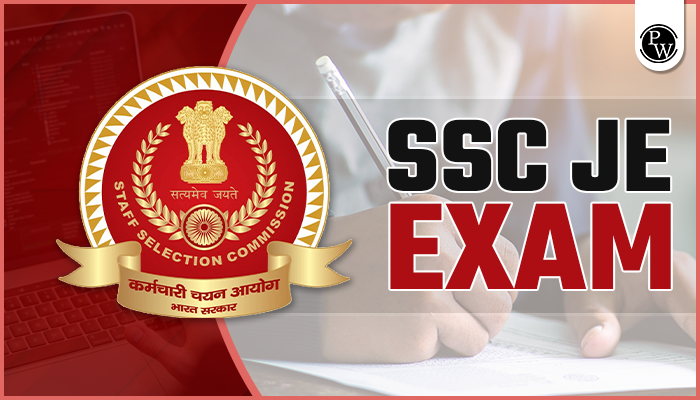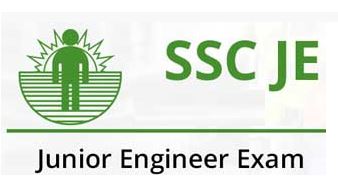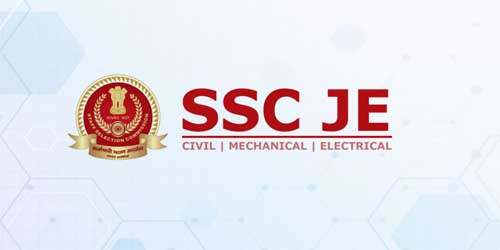Introduction:
The SSC JE examination serves as a gateway for aspiring engineers seeking lucrative career opportunities in the public sector. With a comprehensive syllabus spanning general intelligence, reasoning, awareness, and core engineering concepts, the examination rigorously assesses candidates’ aptitude and knowledge. This introduction outlines the critical components of the syllabus, offering a glimpse into the multifaceted assessment criteria employed by the Staff Selection Commission.


SSC JE Examination Syllabus Overview
The SSC JE (Staff Selection Commission Junior Engineer) examination is a pivotal step for engineering graduates looking to secure a government position in various public sector organizations. The examination syllabus is designed to test the candidate’s aptitude, general awareness, and technical expertise in their specific engineering discipline. Below is a detailed breakdown of each section of the syllabus:
General Intelligence and Reasoning:
Problem Solving:
The ability to solve various problems and puzzles through logical steps.
Logical Reasoning:
Evaluates the candidate’s skill in understanding patterns, relationships, and sequences.
Decision Making:
Tests the capacity to make quick and effective decisions.
Visual Memory and Discrimination:
The ability to distinguish patterns and remember visual details.
Similarities and Differences:
Recognizes similarities and differences among various objects or figures.
General Awareness:
Current Affairs:
Knowledge of significant national and international events, sports, new appointments, awards, etc.
General Science:
Basic concepts and discoveries in Physics, Chemistry, and Biology relevant to daily life and their applications.
General Knowledge:
Questions related to India and its neighboring countries, History, Culture, Geography, Economic Scene, General Polity, and Scientific Research.
General Engineering (Discipline-Specific):
Civil Engineering:
Building Materials: Knowledge of various building materials and their properties.
Structural Engineering: Principles of structural analysis, design of concrete and steel structures.
Environmental Engineering: Basics of environmental pollution, wastewater management, and air pollution control.
Hydraulics: Fluid mechanics principles, flow measurement, hydraulic machines, and hydro power.
Electrical Engineering:
Basic Concepts: Fundamental electrical laws, principles, and materials.
Circuit Theory: Circuit analysis techniques, AC/DC circuits, and network theorems.
Electrical Machines: Transformers, DC machines, Induction motors, Synchronous machines.
Power Systems: Basics of power generation, transmission, distribution, and power system protection.
Mechanical Engineering:
Thermodynamics: Basic concepts, laws of thermodynamics, and their applications.
Fluid Mechanics: Properties of fluids, fluid statics and dynamics, flow through pipes and channels.
Machine Design: Design of basic elements like gears, bearings, and springs.
Manufacturing Engineering: Different manufacturing processes, tools, and machinery.
Exam Pattern
The SSC JE examination consists of two papers: Paper 1 and Paper 2.
Paper 1
Mode: Computer-Based Test (CBT)
Duration: 2 hours
Total Marks: 200
Sections: General Intelligence and Reasoning, General Awareness, General Engineering (Civil/Electrical/Mechanical)
Number of Questions: 200 (50 questions in each section)
Negative Marking: 0.25 marks deducted for each incorrect answer
Paper 2
Mode: Descriptive
Duration: 2 hours
Total Marks: 300
Sections: General Engineering (Civil/Electrical/Mechanical)
This paper is designed to test the candidate’s technical knowledge in their respective engineering discipline.

Conclusion:
In conclusion, the SSC JE examination syllabus encompasses a wide array of topics, challenging candidates to showcase their intellectual prowess and technical acumen. Through a rigorous evaluation process spanning multiple disciplines, the examination identifies deserving candidates poised to contribute significantly to the public sector. Aspiring engineers should diligently prepare across all sections of the syllabus to maximize their chances of success and embark on a rewarding career path in government service.
For the detailed Syllabus; CLICK HERE